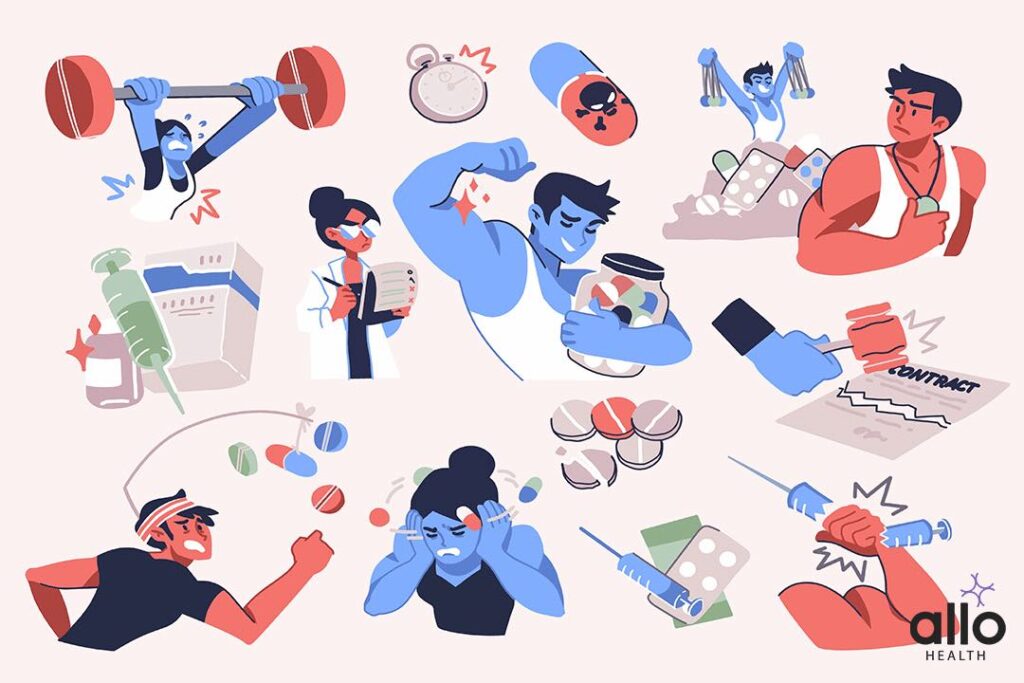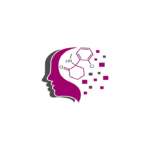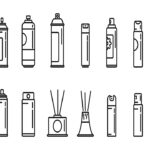Steroid Abuse And Sexual Dysfunction

Allo Health is dedicated to personalized well-being, offering support and trusted information tailored to individual health goals. The platform emphasizes human-generated content, led by a distinguished medical team of experts, including physicians and sexual health specialists. Their commitment to credibility involves rigorous fact-checking, authoritative research, and continuous updates to ensure accurate, up-to-date information. Allo Health's unique approach goes beyond conventional platforms, providing expert-led insights and a continuous commitment to excellence, with user feedback playing a crucial role in shaping the platform's authoritative voice.

An early career psychiatrist with extensive experience in general adult psychiatry, relationship issues, psychosexual problems & special interest in sexual medicine, disorders with addictive behaviours and Obsessive Compulsive disorders. He is an astute physician with excellent academic record and research experience. He is also a member of World Health Organisation and World Psychiatric Association. His vision and goal for Allo is an inclusive, accessible digital health clinic for psychosexual difficulties.
Why This Was Upated?
Our experts continually monitor the health and wellness space, and we update our articles when new information became available.
Updated on 09 June, 2024
- Article was updated as part of our commitment to diversity, equity, and inclusion.

"The following blog article provides general information and insights on various topics. However, it is important to note that the information presented is not intended as professional advice in any specific field or area. The content of this blog is for general educational and informational purposes only.
Book consultation
The content should not be interpreted as endorsement, recommendation, or guarantee of any product, service, or information mentioned. Readers are solely responsible for the decisions and actions they take based on the information provided in this blog. It is essential to exercise individual judgment, critical thinking, and personal responsibility when applying or implementing any information or suggestions discussed in the blog."
Steroid abuse is the use of anabolic steroids in a manner that exceeds the amount or frequency that is prescribed for medical purposes. Anabolic steroids are a class of synthetic hormones that are similar to the male hormone testosterone. They are often prescribed to help people gain weight, build muscle mass, and increase strength. However, when used in excess, these drugs can have serious negative effects on the body and mind.
Steroids are most commonly abused by athletes, bodybuilders, and other individuals who want to improve their physical performance. However, it’s use is not limited to these groups and can be found in a variety of other populations ahs well.
The short-term effects of its abuse can include acne, mood swings, and increased aggression. Long-term effects can include heart disease, liver damage, and an increased risk of certain types of cancer. Steroids can also cause shrinkage of the testicles and infertility in men.
Its abuse can also have significant psychological effects, including depression and an increased risk of suicide. It’s use can lead to addiction, and individuals who stop using it may experience withdrawal symptoms.
Can Steroid Abuse Cause Sexual Dysfunction?
Anabolic steroids, which are synthetic versions of the male hormone testosterone, are often used by athletes and bodybuilders to increase muscle mass and improve athletic performance. However, these drugs can also cause a range of negative side effects, including sexual dysfunction.
Low Sexual Desire [Hyperlink LSD HB]
A decrease in libido, or sex drive can be caused by a decrease in testosterone levels, which can occur as a result of steroid abuse. Testosterone is responsible for maintaining a healthy sex drive, so when levels are low, it can lead to a loss of interest in sex.
Erectile Dysfunction [Hyperlink ED HB]
Steroid abuse can also cause erectile dysfunction, or the inability to get or maintain an erection. This can be caused by a number of factors, including a decrease in blood flow to the penis, changes in the blood vessels, and damage to the nerves that control erections.
Premature Ejaculation [Hyperlink PE HB]
This can be caused by changes in the hormones that control ejaculation, as well as changes in the brain chemistry that can result from steroid abuse.
Decrease In Sperm Count
Steroid abuse can also lead to a decrease in the production of sperm, which can result in infertility. This can be caused by a decrease in the number of sperm produced, as well as changes in the shape and function of the sperm.
Risk Factors Of Steroid Abuse
This addiction is a growing concern among athletes, bodybuilders, and other individuals who use these substances to improve their physical appearance or performance. While steroids can provide many benefits, they also come with a range of risks, including serious health problems, addiction, and even death.
Physical Health Effects
Steroids can cause changes in the body’s hormone levels, which can lead to a range of side effects, such as acne, breast development in males, shrinking of the testicles, and changes in the prostate and liver. It can also increase the risk of heart disease, high blood pressure, and stroke. Additionally, long-term abuse can cause liver damage, kidney damage, and other serious health problems.’
Addiction
Steroids are known to be highly addictive, and many users find it difficult to stop using these substances once they have started. This can lead to a number of problems, such as depression, anxiety, and other mental health issues.
Legal Concerns
Another risk factor is that of legal issues. The possession, distribution, and use of steroids are illegal without a prescription in most countries. Possession and distribution of them can result in hefty fines, and even jail time.
Interpersonal Relationships
Many users find that their relationships with family and friends suffer as a result of their drug use, and they may struggle to maintain healthy relationships as a result.
How Does Steroids Affect The Body?
Steroid abuse has become a growing concern among athletes, bodybuilders, and the general public. These powerful hormones, also known as anabolic-androgenic steroids (AAS), can have serious side effects on the body and mind. Understanding the risk factors of steroid abuse can help prevent the potential damage caused by these drugs.
Brain Effects
Steroids can cause changes in the brain that lead to compulsive drug-seeking behavior. This can make it difficult for users to stop, even when they want to.
Liver Effects
Anabolic steroids, which are synthetic derivatives of the male hormone testosterone, are commonly used by bodybuilders and athletes to increase muscle mass and improve athletic performance. However, the long-term use of these drugs can have serious consequences for the liver.
Steroids can increase the production of estrogen in the body, which can lead to the growth of tumors in the liver. These tumors can be cancerous or benign, but they can cause serious health problems if left untreated.
Long-term use of these drugs can cause the liver to become inflamed and scarred, leading to a condition known as cirrhosis. This can make it harder for the liver to function effectively, and can increase the risk of liver failure.
Another potential complication of steroid abuse is jaundice, which is a yellowing of the skin and eyes caused by a buildup of bilirubin in the blood. This can be a sign of liver damage.
Steroids can also lead to an increase in liver enzymes, which can be an indication of liver damage. High levels of these enzymes can indicate that the liver is working harder than normal, which can be a sign of inflammation or damage.
Heart Effects
One of the most significant effects of steroid abuse on the heart is an increase in blood pressure. Steroids can cause the blood vessels to constrict, which raises blood pressure and puts extra strain on the heart. This can lead to an increased risk of heart attacks and stroke.
It can also lead to the development of heart disease. Long-term use of these drugs can cause the heart muscle to thicken, leading to a condition known as left ventricular hypertrophy. This can make it harder for the heart to pump blood effectively, which can increase the risk of heart failure.
Another potential complication of steroid abuse is an irregular heartbeat, or arrhythmia. Steroids can disrupt the normal electrical activity of the heart, leading to abnormal heartbeats that can be dangerous.
Steroid abuse can also lead to an enlarged heart, which is known as cardiomegaly. This can make it harder for the heart to pump blood effectively, and can also increase the risk of heart failure.
In addition to these cardiovascular problems, steroid abuse can also lead to a range of other health problems, including liver damage, kidney damage, and an increased risk of cancer.
The use of anabolic steroids is illegal in many countries and can be harmful to your health. If you’re experiencing any symptoms of heart problems, please consult a doctor as soon as possible.
Sexual Disorders
Sexual disorders are a common side effect of steroid addiction. Steroids, also known as anabolic-androgenic steroids, are synthetic hormones that mimic the effects of testosterone in the body. They are often used by athletes and bodybuilders to enhance performance and increase muscle mass. However, long-term use of steroids can lead to a number of serious health problems, including sexual disorders.’
Low Libido
This can be caused by a decrease in the body’s natural production of testosterone, which is suppressed by the use of steroids. As a result, men may have difficulty getting or maintaining an erection, and women may experience a lack of sexual desire or difficulty achieving orgasm.
Infertility
Steroids can disrupt the body’s hormonal balance, leading to a decrease in sperm count and sperm motility in men, and irregular menstrual cycles in women. This can make it difficult or impossible for individuals to conceive a child.
Gynecomastia
An addiction can also lead to the development of gynecomastia, a condition where men develop breast tissue. This occurs due to an increase in estrogen levels caused by the use of steroids.
Erectile Dysfunction
The use of steroids can cause blood vessels to constrict which reduce the blood flow to the penis, making it difficult to achieve and maintain an erection.
Sexual disorders caused by steroid addiction can be irreversible, even after the individual stops using steroids. Therefore, it is important to seek professional help and to educate oneself about the risks associated with steroid use.
Mental Health Disorders
Steroid abuse can have a wide range of negative effects on an individual’s physical and mental health. One of the most serious consequences of steroid abuse is the development of mental health disorders. Some of the most common mental health disorders caused by steroid abuse include depression, anxiety, aggression, and psychosis.
Depression is one of the most common mental health disorders associated with steroid abuse. Individuals who abuse steroids may experience feelings of hopelessness, worthlessness, and a lack of interest in activities they once enjoyed. These symptoms can be severe and long-lasting, making it difficult for the individual to function in daily life.
Anxiety is another common mental health disorder associated with abuse of these drugs. Individuals may experience intense feelings of nervousness, worry, and fear. They may also experience panic attacks, which can be debilitating and make it difficult for the individual to leave their home.
Aggression is another common mental health disorder associated with abuse of these drugs. Individuals may become irritable, argumentative, and quick to anger. They may also engage in impulsive and reckless behavior, putting themselves and others at risk.
Psychosis is a rare but serious mental health disorder associated with steroid abuse. Individuals may experience hallucinations, delusions, and disordered thinking. They may also become paranoid and delusional, making it difficult for them to distinguish reality from fantasy.
Major Organs & Systems Negatively Affected
Steroid abuse can have a number of negative effects on the body, including damage to major organs and systems. Some of the most significant effects can be seen in the cardiovascular, gastrointestinal, and reproductive systems.
Cardiovascular effects: Abuse can lead to high blood pressure, an increased risk of heart attack and stroke, and damage to the heart muscle. These risks are particularly high in individuals who already have a pre-existing heart condition.
Gastrointestinal effects: There can be damage to the liver leading to the development of liver tumors. They may also cause pancreatitis, which can lead to diabetes.
Reproductive effects: Steroid abuse can also have significant effects on the reproductive system. Men may experience shrinking of the testicles, impotence, and breast development. Women may experience enlargement of the clitoris, irregular menstrual cycles, and an increased risk of infertility.
Other negative effects: Steroid abuse can also lead to acne, baldness, and the development of excess body hair. It can also cause psychological effects such as aggression, depression, and anxiety.
Frequently Asked Questions
(1) Does steroid abuse affect testicular function?
Steroid abuse can have a significant impact on testicular function. Anabolic steroids, which are commonly abused by athletes and bodybuilders, are synthetic hormones that mimic the effects of testosterone in the body. When taken in large doses, these drugs can interfere with the body’s natural production of testosterone, leading to a condition known as hypogonadism.
One of the most obvious effects on testicular function is a decrease in sperm count and fertility. Men who abuse steroids may experience a decline in sperm production, which can make it difficult or impossible for them to father a child. Additionally, the quality of sperm may be compromised, leading to lower chances of fertilisation.
Steroid abuse can also lead to a condition known as testicular atrophy, which is characterised by a shrinking of the testicles. This occurs because the body’s natural production of testosterone is suppressed, causing the testicles to shrink and lose their ability to function properly.
Long-term steroid abuse can also lead to the development of testicular cancer. Studies have shown that men who abuse steroids are at a higher risk of developing testicular cancer than those who do not.
(2) Does steroid abuse reduce testosterone production?
Steroid abuse, also known as anabolic-androgenic steroid (AAS) abuse, is a growing concern among athletes, bodybuilders, and other individuals who use these substances to enhance their physical performance and appearance. One of the major concerns associated with steroid abuse is the potential for decreased testosterone production.
Testosterone is a hormone that plays a vital role in the development and maintenance of male characteristics, such as muscle mass, bone density, and body hair. When an individual abuses steroids, their body may respond by shutting down its own natural testosterone production. This can lead to a condition known as hypogonadism, which is characterized by a reduction in testosterone levels.
Long-term abuse can also lead to permanent damage to the testes, which are responsible for producing testosterone. This damage can result in a decreased ability to produce testosterone, even after the individual stops using steroids.
The reduction in testosterone production can have a number of negative effects on an individual’s health and well-being. Men who experience hypogonadism may experience decreased libido, erectile dysfunction, and infertility. They may also experience a loss of muscle mass and strength, as well as an increase in body fat.
Factors such as the type of steroid used, the dosage, and the duration of use can all impact the severity of the side effects. Additionally, many individuals who abuse steroids also use other substances, such as human chorionic gonadotropin (hCG) to try to counter the effects of decreased testosterone production.
(3) Does steroid abuse cause hair loss?
Steroid abuse is a growing concern among athletes and bodybuilders who use these drugs to enhance their performance and build muscle mass. However, one of the side effects is hair loss, which can be a major concern for those who are already prone to hair loss or who value their appearance.
Steroids are synthetic hormones that mimic the effects of testosterone, the male sex hormone. They are often used to help build muscle mass and increase strength, but they can also have a number of side effects, including hair loss.
The mechanism by which it cause hair loss is not well understood, but it is thought to be related to the way that the hormones affect the hair follicles. Steroids can cause the hair follicles to shrink, which can lead to thinning hair and eventually hair loss.
Another possible mechanism is that it can cause an increase in the levels of the hormone DHT (dihydrotestosterone) which can cause hair loss in people that are genetically prone to it.
A condition called “steroid alopecia” which is a form of hair loss that is specific to steroid users. This condition is characterized by a diffuse thinning of the hair on the scalp, and it can occur in both men and women.
Additionally, there are many hair loss treatments available such as Minoxidil and Finasteride that can help to slow down or stop hair loss caused by steroid abuse.
Steroid abuse can cause hair loss, it’s important to be aware of the potential side effects and to speak with a healthcare professional if you are experiencing hair loss or considering using steroids. The risks of steroid abuse are significant and should not be ignored. If you or a loved one is struggling with drug abuse, it is important to seek help from a healthcare professional or addiction specialist.







































